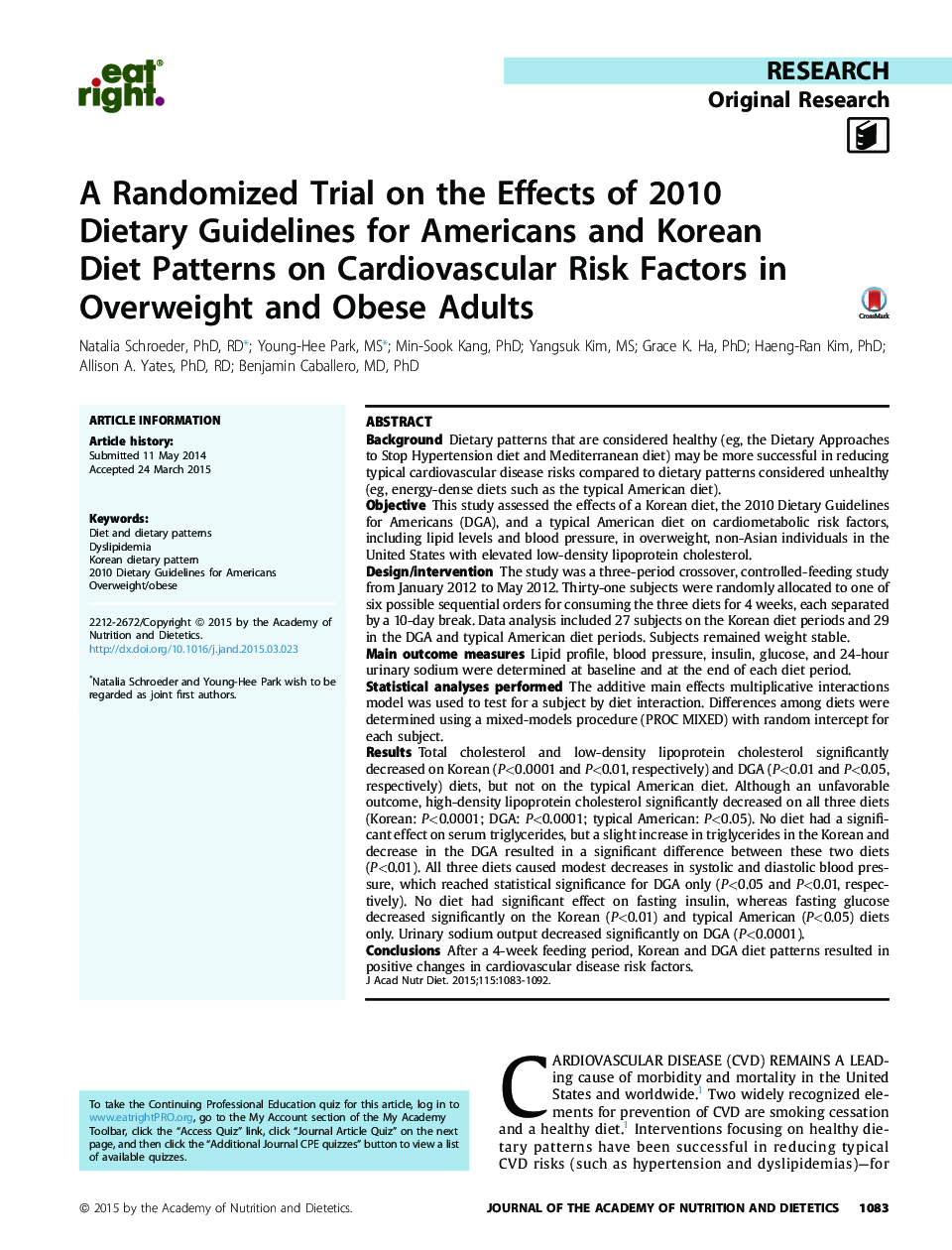| Article ID | Journal | Published Year | Pages | File Type |
|---|---|---|---|---|
| 2653007 | Journal of the Academy of Nutrition and Dietetics | 2015 | 10 Pages |
BackgroundDietary patterns that are considered healthy (eg, the Dietary Approaches to Stop Hypertension diet and Mediterranean diet) may be more successful in reducing typical cardiovascular disease risks compared to dietary patterns considered unhealthy (eg, energy-dense diets such as the typical American diet).ObjectiveThis study assessed the effects of a Korean diet, the 2010 Dietary Guidelines for Americans (DGA), and a typical American diet on cardiometabolic risk factors, including lipid levels and blood pressure, in overweight, non-Asian individuals in the United States with elevated low-density lipoprotein cholesterol.Design/interventionThe study was a three-period crossover, controlled-feeding study from January 2012 to May 2012. Thirty-one subjects were randomly allocated to one of six possible sequential orders for consuming the three diets for 4 weeks, each separated by a 10-day break. Data analysis included 27 subjects on the Korean diet periods and 29 in the DGA and typical American diet periods. Subjects remained weight stable.Main outcome measuresLipid profile, blood pressure, insulin, glucose, and 24-hour urinary sodium were determined at baseline and at the end of each diet period.Statistical analyses performedThe additive main effects multiplicative interactions model was used to test for a subject by diet interaction. Differences among diets were determined using a mixed-models procedure (PROC MIXED) with random intercept for each subject.ResultsTotal cholesterol and low-density lipoprotein cholesterol significantly decreased on Korean (P<0.0001 and P<0.01, respectively) and DGA (P<0.01 and P<0.05, respectively) diets, but not on the typical American diet. Although an unfavorable outcome, high-density lipoprotein cholesterol significantly decreased on all three diets (Korean: P<0.0001; DGA: P<0.0001; typical American: P<0.05). No diet had a significant effect on serum triglycerides, but a slight increase in triglycerides in the Korean and decrease in the DGA resulted in a significant difference between these two diets (P<0.01). All three diets caused modest decreases in systolic and diastolic blood pressure, which reached statistical significance for DGA only (P<0.05 and P<0.01, respectively). No diet had significant effect on fasting insulin, whereas fasting glucose decreased significantly on the Korean (P<0.01) and typical American (P<0.05) diets only. Urinary sodium output decreased significantly on DGA (P<0.0001).ConclusionsAfter a 4-week feeding period, Korean and DGA diet patterns resulted in positive changes in cardiovascular disease risk factors.
